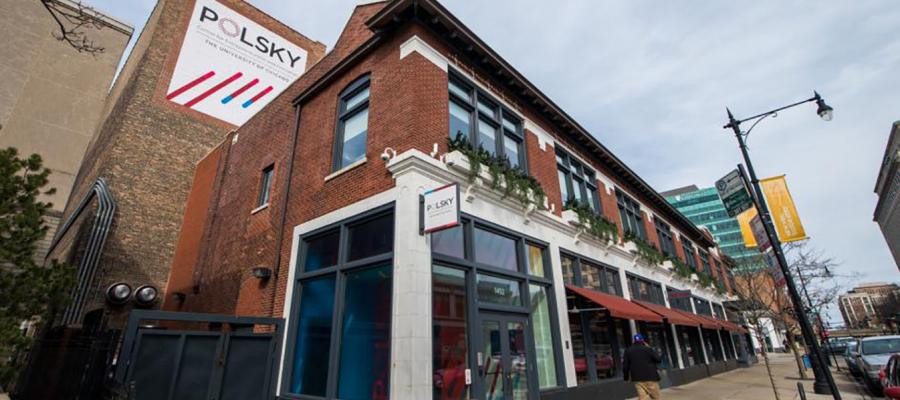Constru(ct)ing the Current
John Nichols, the Washington Correspondent for The Nation will deliver the keynote address at a Media conference on Friday afternoon. He replaces Pulitzer Prize winning investigative reporter Seymour Hersh, one of the journalists to break the Abu-Ghraib prison-abuse scandal.
The two day conference at the I-House “Constru(ct)ing the Current,” begins Friday and continues through Saturday afternoon. It will examine different facets of the media, including blogging and partisanship in journalism and public opinion and the creation of consensus.
The conference begins with the assumption that news is neither natural nor self-evident but is the product of institutional practices of selection and representation. Looking across media type and genre, panelists will examine how mass media constructs and construes happenings as significant events, trends, and facts about the world.
The conference was made possible by the Political Communications Initiative, with the generous support of the International House Global Voices Program, the Division of the Social Sciences, the Division of the Humanities, the Graham School of General Studies, the Cultural Policy Center, the Norman Wait Harris Fund of the Center for International Studies, the Committee on Human Development, the Department of Political Science, the Law School, and the Franke Institute for the Humanities.
For more information and a full schedule, visit social-sciences.uchicago.edu/mediaconf/.
—Isaac Wolf
Martha Nussbaum says what matters to her and why
Martha Nussbaum, the Ernst Freud Distinguished Service Professor of Law and Ethics, spoke to students on Thursday about her academic work in philosophy as part of the “What Matters to Me and Why” brown-bag series.
In her introduction, Nussbaum said that she was fortunate to love what she does, tracing her interest in the nature of human vulnerability back to her high school days. Now an established professor in her field, Nussbaum’s fascination with the normative issue of vulnerability continues.
Nussbaum said that the emotions people experience as humans acknowledge their vulnerability, adding that it would be a mistake to close off areas of themselves deemed to be vulnerable. In recent years, Nussbaum has studied the vulnerability of women, particularly in reference to sexual violence.
Nussbaum also cited the work she co-authored with Amartya Sen on the developing world as a life-changing experience.
“I was stunned by the magnitude of the problems in developing countries,” said Nussbaum, “and I began to see what philosophy had to contribute.”
Talking about poverty and hunger in the developing world, Nussbaum maintained that philosophy provides a framework for analyzing how a global justice can be achieved. She asserted the need for compassion to be “educated and extended,” so that those lucky enough to live a comfortable life are conscious of those who suffer. Nussbaum then cited several psychological studies that demonstrate modern families do not spend enough time together, explaining why others suffer. She interprets these results as evidence of the underdevelopment compassion in the society of wealthier nations.
—Daniel Gilbert
University Hospital nurses ratify new labor contract
The nurses at the University Hospitals ratified their new three-year labor contract on Wednesday by a margin of roughly four to one, according to officials at the Illinois Nursing Association (INA).
The hospital and INA negotiators will return to the bargaining table in coming days to draft an official proposal that will be signed by both parties.
“With votes like this, technically anything can happen, but I was pretty confident it would get passed,” said Ken Daugherty, senior staff specialist at INA. “It contained the three major things that we were campaigning for, and I thought the nurses realized it was a competitive agreement.”
While Daugherty could not recall the exact tally, he estimated the results were approximately 387 votes in favor of the agreement and 95 against.
John Easton, the director of media and public affairs at University Hospitals, said the negotiations did not distract the hospital staff from continuing its duties, as most employees trusted the bargaining team to represent their best interests.
“I think everyone is relieved. We came up with a settlement that makes both sides happy,” Easton said. “It’s nice not to have one more thing to worry about.”
Although the specific terms of the agreement have yet to be determined, the nurses will receive a 13 percent pay increase spread over three years. The initial offer by the University at their first talks several months ago was a three percent increase.
If the vote had failed, according to Daugherty, the two sides would have immediately returned to the negotiating table. He added that reopening talks often proves extremely difficult, because it entails going over the entire agreement essentially from scratch.
The nurses have not yet planned any special events to celebrate their new contract, but both the INA and the hospital appear happy to have closed this chapter in their history.
“People who voted for the agreement are glad to have it behind them,” Daugherty said.
—Andrew Moesel









